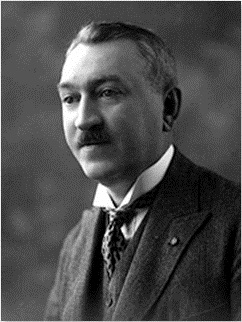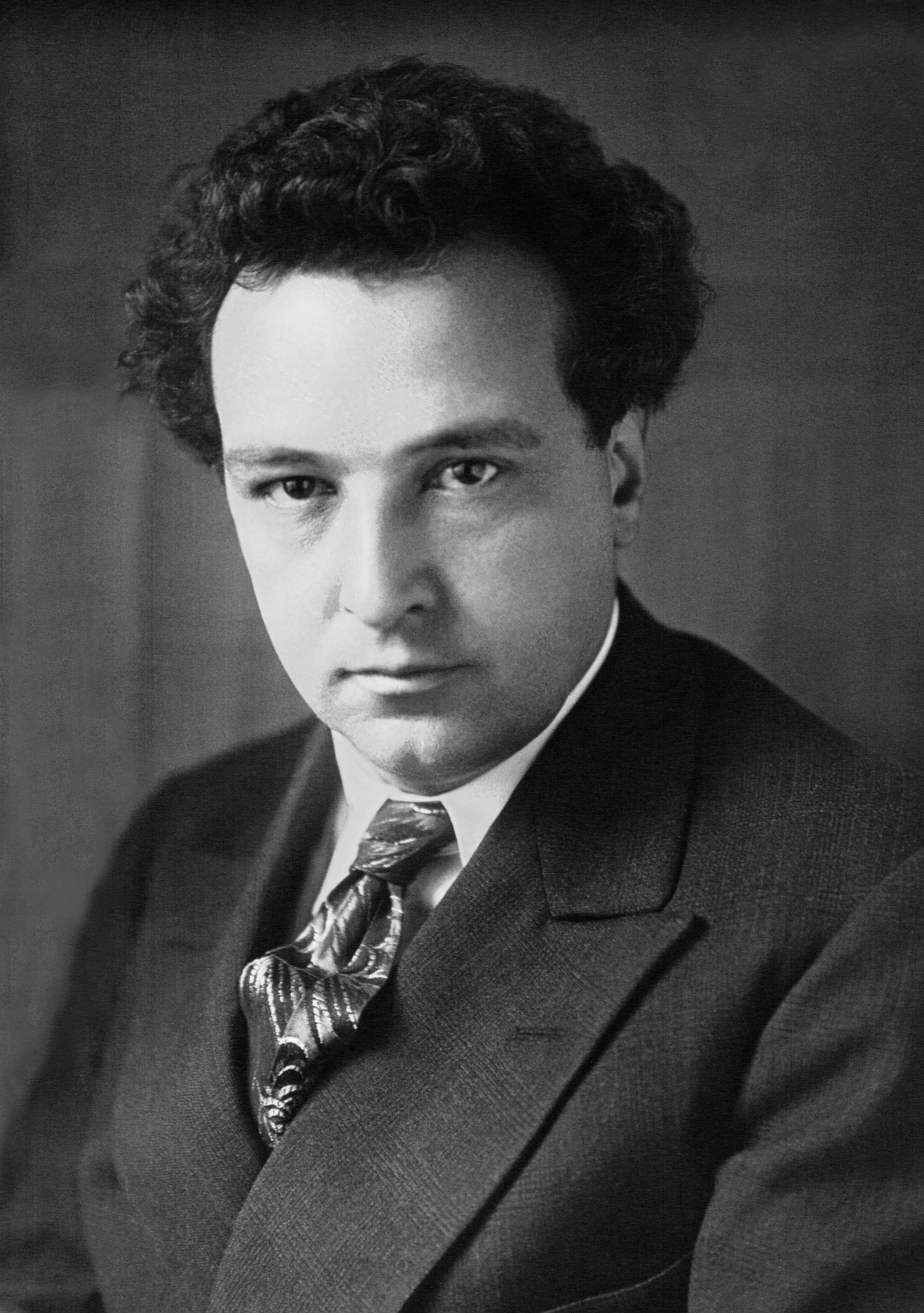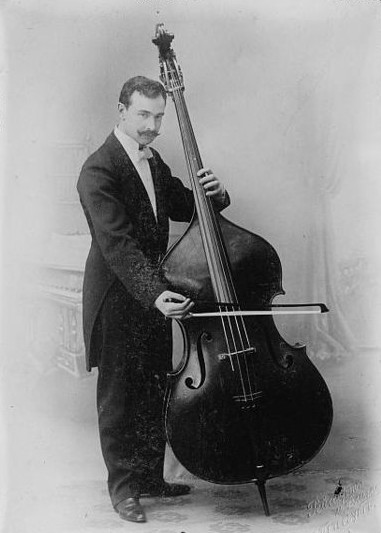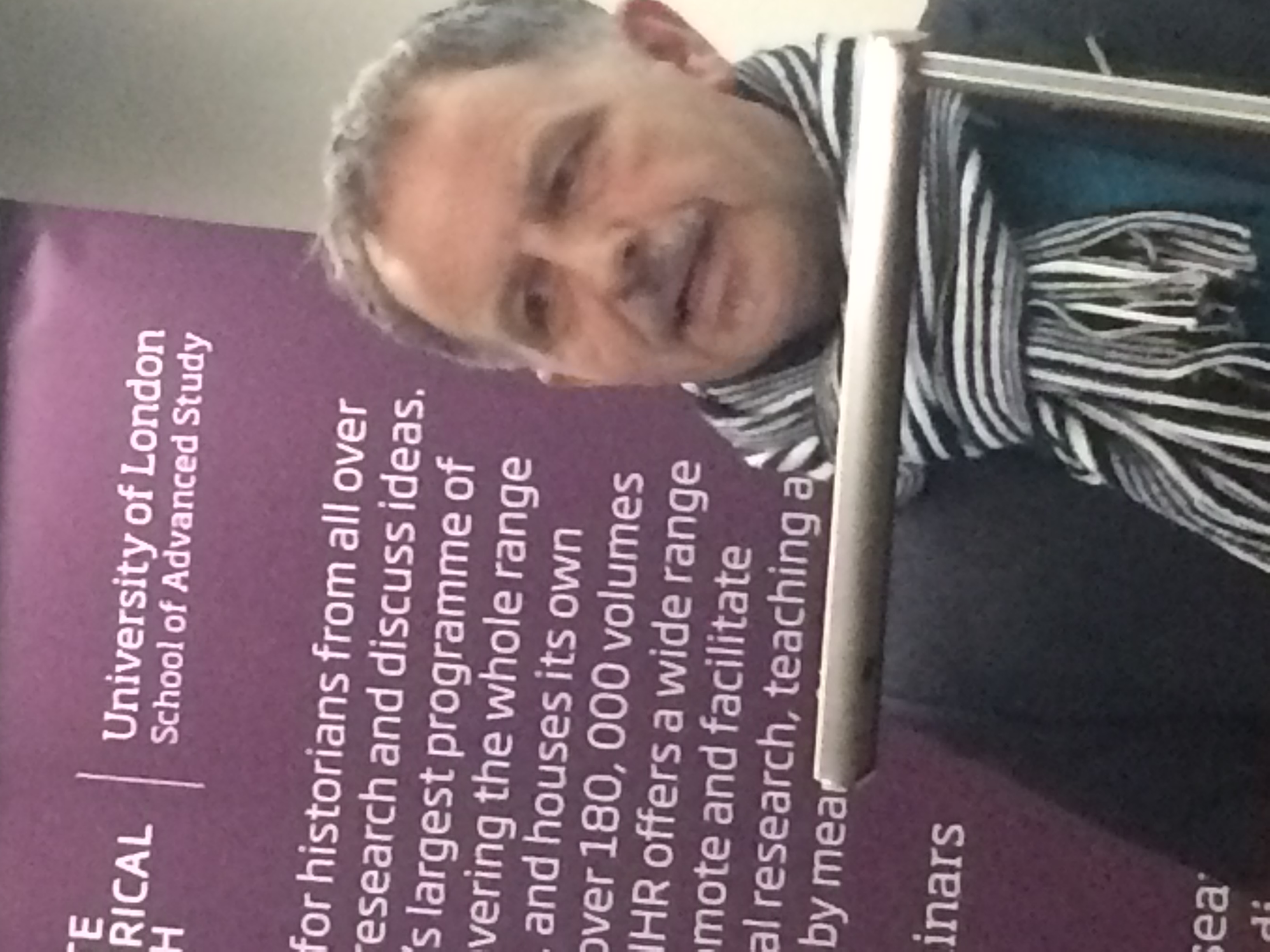|
Nicolas Obouhow
Nikolai Borisovich Obukhov (russian: Николай Борисович Обухов; Nicolai, Nicolas, Nikolay; Obukhow, Obouhow, Obouhov, Obouhoff) (22 April 189213 June 1954)Jonathan Powell. "Obouhow, Nicolas." In Grove Music Online. Oxford Music Online, http://www.oxfordmusiconline.com/subscriber/article/grove/music/20236 (accessed 22 January 2011). (Numerous variant spellings of both his first and last names can be found in the literature) was a modernist and mystic Russian composer, active mainly in France. An avant-garde figure who took as his point of departure the late music of Scriabin, he fled Russia along with his family after the Bolshevik Revolution, settling in Paris. His music is notable for its religious mysticism, its unusual notation, its use of an idiosyncratic 12-tone chromatic language, and its pioneering use of electronic musical instruments in the era of their earliest development. Life Russia Obukhov was born in Ol'shanka, in Kursk Governorate, Russia, ... [...More Info...] [...Related Items...] OR: [Wikipedia] [Google] [Baidu] |
:Template:Infobox Writer/doc
Infobox writer may be used to summarize information about a person who is a writer/author (includes screenwriters). If the writer-specific fields here are not needed, consider using the more general ; other infoboxes there can be found in :People and person infobox templates. This template may also be used as a module (or sub-template) of ; see WikiProject Infoboxes/embed for guidance on such usage. Syntax The infobox may be added by pasting the template as shown below into an article. All fields are optional. Any unused parameter names can be left blank or omitted. Parameters Please remove any parameters from an article's infobox that are unlikely to be used. All parameters are optional. Unless otherwise specified, if a parameter has multiple values, they should be comma-separated using the template: : which produces: : , language= If any of the individual values contain commas already, add to use semi-colons as separators: : which produces: : , ps ... [...More Info...] [...Related Items...] OR: [Wikipedia] [Google] [Baidu] |
Nikolai Tcherepnin
Nikolai Nikolayevich Tcherepnin (Russian: Николай Николаевич Черепнин; – 26 June 1945) was a Russian composer, pianist, and conductor. He was born in Saint Petersburg and studied under Nikolai Rimsky-Korsakov at the Saint Petersburg Conservatory. He conducted for the first Paris season of Sergei Diaghilev's Ballets Russes. Life Nikolai Tcherepnin was born in 1873 to a well-known and wealthy physician of the same name. The elder Nikolai moved in elite circles of artists including Fyodor Dostoyevsky and Modest Mussorgsky. Young Nikolai's mother died when he was a baby, and when his father remarried, was replaced by an ambivalent stepmother. As a child, Nikolai's father beat him regularly and enforced a general code of strict discipline. At his father's insistence, Nikolai earned a law degree, though during this time he composed steadily. In 1895 he graduated with his degree in law from the University of Saint Petersburg. In 1898, he earned a degre ... [...More Info...] [...Related Items...] OR: [Wikipedia] [Google] [Baidu] |
Auguste Durand
Marie-Auguste Massacrié-Durand (18 July 1830 – 31 May 1909) was a French music publisher, organist, and composer. Biography Durand was born in Paris and studied at the Paris Conservatoire with François Benoist. He started as an organist in 1849 in Saint-Ambroise, then at St. Genevieve, St. Roch and St. Vincent de Paul (1862–74). A. Durand & fils Together with Louis Schoenewerk and other sponsors, Durand founded the company Durand-Schoenewerk & Cie. in December 1869 and acquired the important catalogue of the Paris music publisher Gustave Flaxland (1821–1895), which had grown from approximately 1,200 titles in 1847 to 1,400 titles in 1869. This included the French rights to the early Wagner operas. Following a dispute, the company dissolved on 18 March 1885 and was sold at auction in May 1896. Auguste Durand and Louis Schoenewerk bought the firm in its entirety, and they reconstituted the company with Durand's son Jacques (1865–1928). In November 1891, Jacques replace ... [...More Info...] [...Related Items...] OR: [Wikipedia] [Google] [Baidu] |
Arthur Honegger
Arthur Honegger (; 10 March 1892 – 27 November 1955) was a Swiss composer who was born in France and lived a large part of his life in Paris. A member of Les Six, his best known work is probably ''Antigone'', composed between 1924 and 1927 to the French libretto by Jean Cocteau based on the tragedy ''Antigone'' by Sophocles. It premiered on 28 December 1927 at the Théâtre Royal de la Monnaie with sets designed by Pablo Picasso and costumes by Coco Chanel. However, his most frequently performed work is probably the orchestral work ''Pacific 231'', which was inspired by the sound of a steam locomotive. Biography Born Oscar-Arthur Honegger (the first name was never used) to Swiss parents in Le Havre, France, he initially studied harmony with Robert-Charles Martin (to whom he dedicated his first published work and violin in Le Havre. After studying for two years at the Zurich Conservatory, he enrolled in the Paris Conservatoire from 1911 to 1918, studying with both Charl ... [...More Info...] [...Related Items...] OR: [Wikipedia] [Google] [Baidu] |
Cantata
A cantata (; ; literally "sung", past participle feminine singular of the Italian verb ''cantare'', "to sing") is a vocal composition with an instrumental accompaniment, typically in several movements, often involving a choir. The meaning of the term changed over time, from the simple single-voice madrigal of the early 17th century, to the multi-voice "cantata da camera" and the "cantata da chiesa" of the later part of that century, from the more substantial dramatic forms of the 18th century to the usually sacred-texted 19th-century cantata, which was effectively a type of short oratorio. Cantatas for use in the liturgy of church services are called church cantata or sacred cantata; other cantatas can be indicated as secular cantatas. Several cantatas were, and still are, written for special occasions, such as Christmas cantatas. Christoph Graupner, Georg Philipp Telemann and Johann Sebastian Bach composed cycles of church cantatas for the occasions of the liturgical year. ... [...More Info...] [...Related Items...] OR: [Wikipedia] [Google] [Baidu] |
Igor Stravinsky
Igor Fyodorovich Stravinsky (6 April 1971) was a Russian composer, pianist and conductor, later of French (from 1934) and American (from 1945) citizenship. He is widely considered one of the most important and influential composers of the 20th century and a pivotal figure in modernist music. Stravinsky's compositional career was notable for its stylistic diversity. He first achieved international fame with three ballets commissioned by the impresario Sergei Diaghilev and first performed in Paris by Diaghilev's Ballets Russes: ''The Firebird'' (1910), ''Petrushka'' (1911), and ''The Rite of Spring'' (1913). The last transformed the way in which subsequent composers thought about rhythmic structure and was largely responsible for Stravinsky's enduring reputation as a revolutionary who pushed the boundaries of musical design. His "Russian phase", which continued with works such as '' Renard'', ''L'Histoire du soldat,'' and ''Les noces'', was followed in the 1920s by a period ... [...More Info...] [...Related Items...] OR: [Wikipedia] [Google] [Baidu] |
Serge Koussevitzky
Sergei Alexandrovich KoussevitzkyKoussevitzky's original Russian forename is usually transliterated into English as either "Sergei" or "Sergey"; however, he himself adopted the French spelling "Serge", using it in his signature. (SeThe Koussevitzky Music Foundations official web site Retrieved 5 November 2009.) His surname can be transliterated variously as "Koussevitzky", "Koussevitsky", "Kussevitzky", "Kusevitsky", or, into Polish, as "Kusewicki"; however, he himself chose to use "Koussevitzky". (russian: Серге́й Алекса́ндрович Кусеви́цкий, links=no; ''Sergey Aleksandrovich Kusevitsky''; 4 June 1951) was a Russian-born conductor, composer and double-bassist, known for his long tenure as music director of the Boston Symphony Orchestra from 1924 to 1949. Biography Early career Koussevitzky was born into a Jewish family of professional musicians in Vyshny Volochyok, Tver Governorate (present-day Tver Oblast), about 250 km northwest of Moscow ... [...More Info...] [...Related Items...] OR: [Wikipedia] [Google] [Baidu] |
Simon Shaw-Miller
Simon Shaw-Miller (born 1960) is emeritus professor of history of art at the University of Bristol. He is a specialist in the relationships between art and music in the modern period. Early life and education Simon Shaw-Miller was born Simon Miller in 1960 in Pembury, on the outskirts of Royal Tunbridge Wells. He was brought up in the village of Hollingbourne and the council estates of Park Wood and Senacre on the outskirts of Maidstone, in Kent. He attended Oldborough Manor High School, and then went to Brighton Polytechnic (later the University of Brighton) to study for a joint degree in art with music, graduating in 1982. He did post graduate research in the Department of Art History and Theory at the University of Essex, studying with Michael Podro, Peter Vergo, John Nash, Dawn Ades and Thomas Puttfarken, and was awarded his doctorate in 1988 for "Music and Art and the Crisis in Early Modernism: An introduction to some non-serial dodecaphonic techniques". The examiners o ... [...More Info...] [...Related Items...] OR: [Wikipedia] [Google] [Baidu] |
Theremin
The theremin (; originally known as the ætherphone/etherphone, thereminophone or termenvox/thereminvox) is an electronic musical instrument controlled without physical contact by the performer (who is known as a thereminist). It is named after its inventor, Leon Theremin, who patented the device in 1928. The instrument's controlling section usually consists of two metal antenna (radio), antennas which sense the relative position of the thereminist's hands and control oscillation, oscillators for frequency with one hand, and amplitude (Loudness, volume) with the other. The electric signals from the theremin are amplifier, amplified and sent to a loudspeaker. The sound of the instrument is often associated with wikt:eerie, eerie situations. The theremin has been used in movie soundtracks such as Miklós Rózsa's ''Spellbound (1945 film), Spellbound'' and ''The Lost Weekend (film), The Lost Weekend'', Bernard Herrmann's ''The Day the Earth Stood Still (soundtrack), The Day the E ... [...More Info...] [...Related Items...] OR: [Wikipedia] [Google] [Baidu] |
Croix Sonore
The Croix Sonore is an early electronic musical instrument with continuous pitch, similar to the theremin. Like the theremin, the pitch of the tone is dependent on the nearness of the player's arm to an antenna; unlike the theremin, the antenna was in the shape of a cross, and the electronics were inside a brass ball to which the cross was affixed. It was developed by Russian born composer Nikolai Obukhov who lived and worked in France from 1918, and built by Michel Billaudot and Pierre Dauvillier in Paris; they developed a prototype version in 1926 and demonstrated an improved version in 1934. Along with many, including Maurice Martenot, Obhukov was present at a demonstration of the thereminvox by its inventor Lev Termen (Leon Theremin) in 1924. Obukhov composed several pieces for the Croix Sonore, in duet with piano, in ensemble and as solo instrument with orchestras. The Croix Sonore was played by Marie-Antoinette Aussenac-Broglie, who was a student of Obukhov's.Jonathan Powell ... [...More Info...] [...Related Items...] OR: [Wikipedia] [Google] [Baidu] |
Maurice Ravel
Joseph Maurice Ravel (7 March 1875 – 28 December 1937) was a French composer, pianist and conductor. He is often associated with Impressionism along with his elder contemporary Claude Debussy, although both composers rejected the term. In the 1920s and 1930s Ravel was internationally regarded as France's greatest living composer. Born to a music-loving family, Ravel attended France's premier music college, the Paris Conservatoire; he was not well regarded by its conservative establishment, whose biased treatment of him caused a scandal. After leaving the conservatoire, Ravel found his own way as a composer, developing a style of great clarity and incorporating elements of modernism, baroque, neoclassicism and, in his later works, jazz. He liked to experiment with musical form, as in his best-known work, ''Boléro'' (1928), in which repetition takes the place of development. Renowned for his abilities in orchestration, Ravel made some orchestral arrangements of other compose ... [...More Info...] [...Related Items...] OR: [Wikipedia] [Google] [Baidu] |







